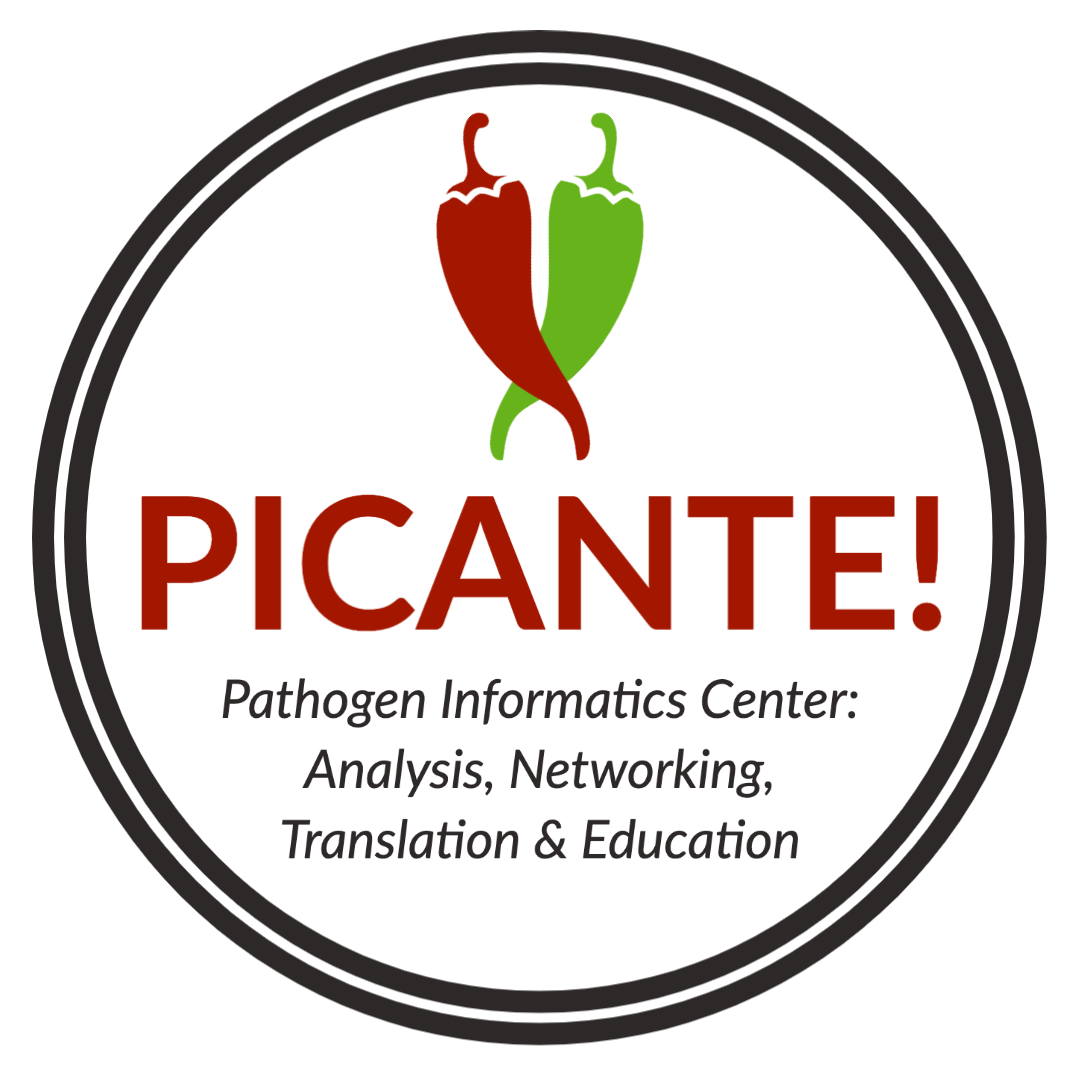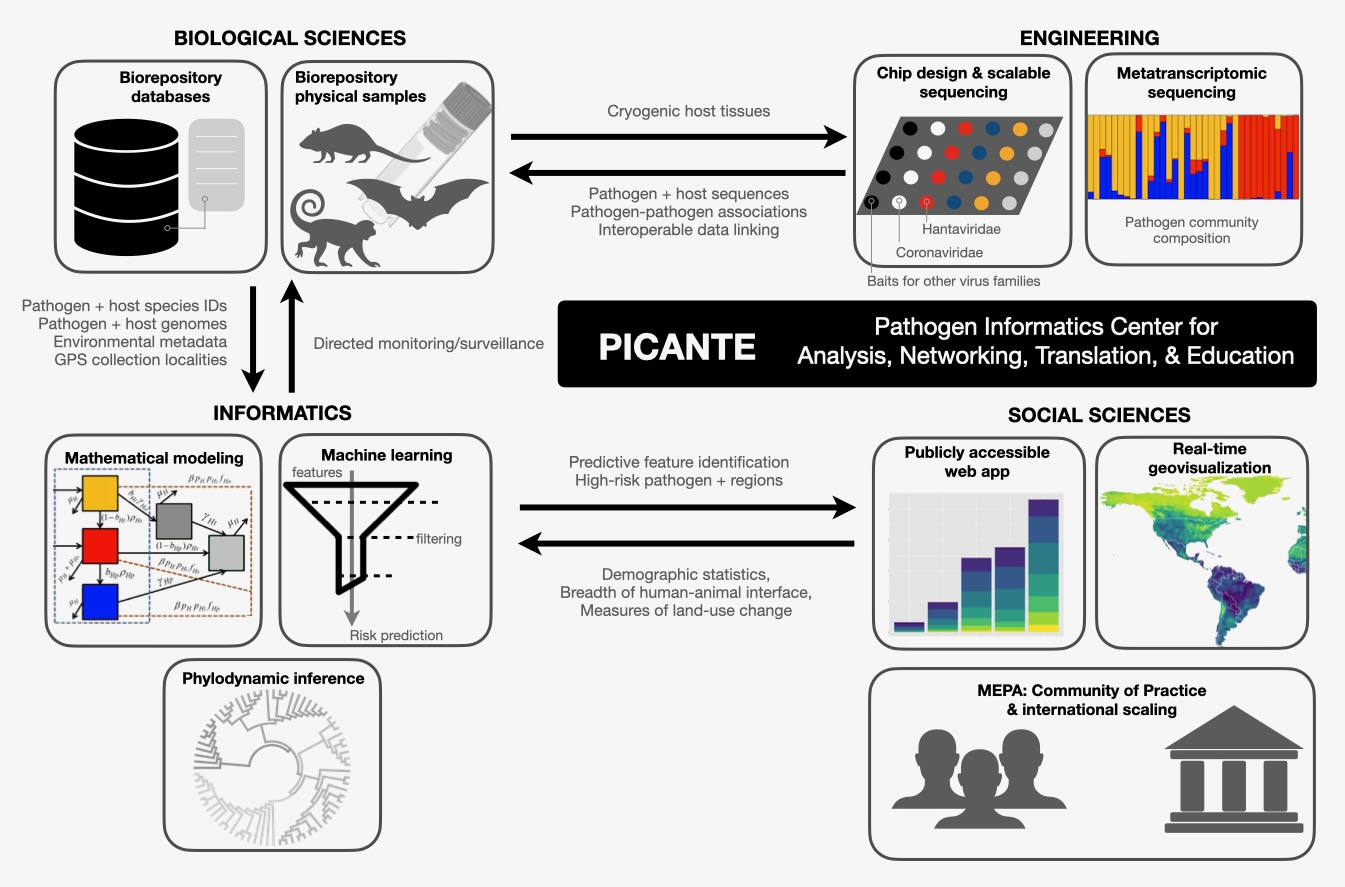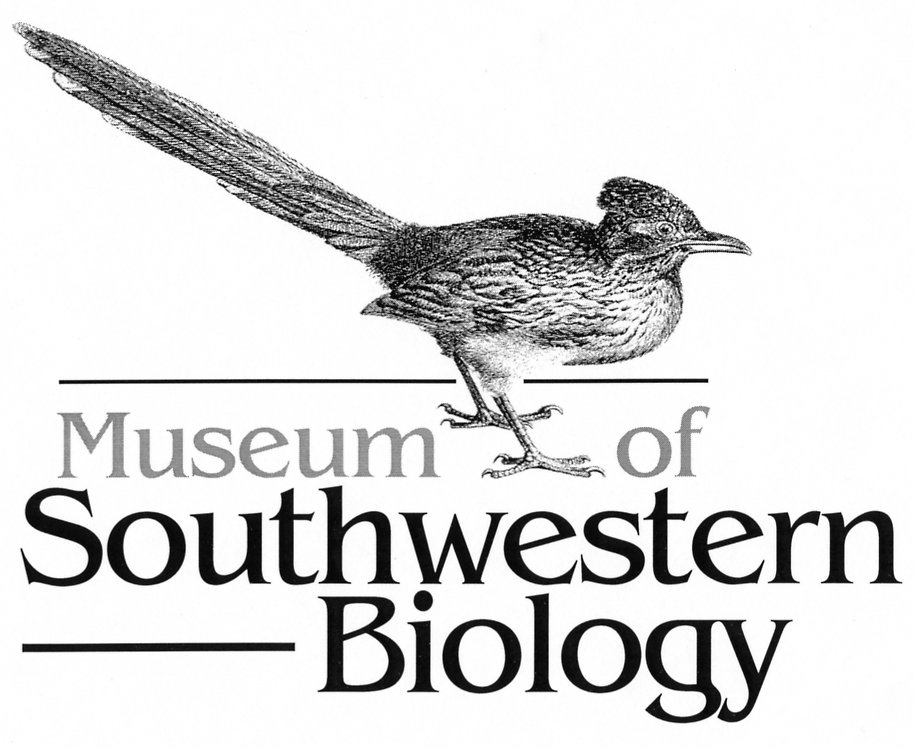PICANTE!

Pandemics pose a global challenge in need of international, collaborative solutions.
PICANTE (Pathogen Informatics Center: Analysis, Networking, Translation & Education) aims to stimulate strategic surveillance at the nexus of emerging infectious disease --- the dynamic environmental interfaces between wildlife and rural communities.
PICANTE represents partnerships and integration among individuals and groups at the nexus of engineering, computer science, pathobiology, wildlife management, museum collections management, epidemiology, virology and others in a diverse user community who depend and contribute to pathways for prediction, detection and mitigation of zoonotic pathogens. Based on state of the art genomics, flow of bioinformatics information, vizualization tools, mathematical modelling, and analytical approaches from machine learning, PICANTE seeks to translate complex data streams into direct and actionable information to anticipate and mitigate emerging infectious diseases.
Read the press release
Core Research
Rapid integration of pathobiology into the vast global infrastructure of non-model biorepositories (sampling and informatics) will act as an early warning system for pandemic prediction and prevention.
In Phase I, we aim to build critical synergy among engineers, computer scientists, social scientists, biologists, and international partners to develop and disseminate actionable information about pathogens within the context of global change in the biosphere.

Key Contributions
- informatics baselines for pathogens and hosts derived from existing biorepositories representing decadal sampling of mammalian communities and linked directly to targeted strategies for improved monitoring and surveillance;
- pipelines that streamline sequencing and bioinformatic methods for rapid, affordable, large-scale screening of mammalian host and parasite samples to provide scalable views of diversity and change over space and time;
- pathogen risk assessments linking novel methods that integrate social and environmental parameters and pathogen diversity to predict the outcomes accelerating anthropogenic change;
- collaborations across local biorepositories to develop strategic sampling and digitization protocols for expanded geographic, temporal and taxonomic coverage;
Core Outreach
NSF Predictive Intelligence for Pandemic Prevention: Development Grant (PIPP Phase I)
PICANTE!
University of New Mexico, New Mexico State University, University of Kansas, Los Alamos National Laboratory Consortium – Funding though NSF 2155222





